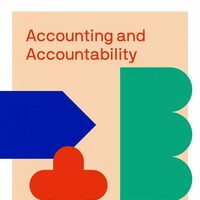Search
Books+
Searching 1,730 books
Search related to the career Accountant
The responsibilities involved in becoming an accountant typically include:
1. Financial Record-Keeping: Accountants are responsible for maintaining accurate and up-to-date financial records for individuals, organizations, or businesses. This involves recording transactions, preparing financial statements, and ensuring compliance with accounting principles and regulations.
2. Bookkeeping: Accountants often handle bookkeeping tasks, such as recording financial transactions, reconciling bank statements, and managing accounts payable and receivable. They ensure that financial data is organized and accessible for analysis and reporting.
3. Financial Analysis: Accountants analyze financial data to provide insights and recommendations to clients or management. They assess financial performance, identify trends, and interpret financial ratios to help make informed business decisions.
4. Tax Preparation and Planning: Accountants assist individuals and businesses in preparing and filing tax returns. They stay updated with tax laws and regulations to ensure compliance and help clients minimize tax liabilities through effective tax planning strategies.
5. Auditing: Accountants may conduct internal or external audits to review financial records and assess compliance with laws and regulations. They examine financial statements, verify accuracy, and identify any discrepancies or irregularities.
6. Budgeting and Forecasting: Accountants play a crucial role in budgeting and forecasting processes. They collaborate with management to develop financial plans, set budgets, and monitor actual performance against projected figures. They provide financial insights to support decision-making and resource allocation.
7. Financial Consulting: Accountants often provide financial consulting services to clients. They offer advice on financial management, investment decisions, cost reduction strategies, and other financial matters to help clients achieve their goals and improve their financial health.
8. Compliance and Ethics: Accountants are responsible for maintaining high ethical standards and ensuring compliance with accounting principles, professional standards, and legal requirements. They uphold confidentiality, integrity, and objectivity in their work and adhere to professional codes of conduct.
9. Continuous Learning: Accountants need to stay updated with changes in accounting standards, tax laws, and industry regulations. They engage in professional development activities, such as attending seminars, obtaining certifications, and participating in training programs to enhance their knowledge and skills.
10. Communication and Collaboration: Accountants often interact with clients, colleagues, and stakeholders to gather information, present financial data, and provide advice. Effective communication, collaboration, and interpersonal skills are essential for building relationships and delivering financial insights in a clear and understandable manner.
Source: Various AI tools
Accounting
Books tagged accounting
Searched in English.














